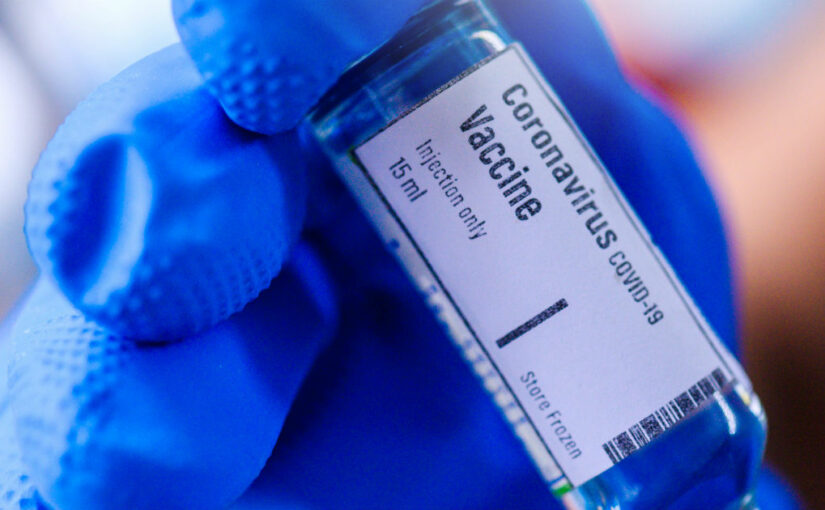On December 17, 2020, the American Society of Clinical Oncology and Infectious Diseases Society of America held a “COVID-19 Vaccine & Patients with Cancer” webinar to discuss the importance of COVID-19 vaccination and to provide expert opinion on its use for cancer patients. At the time of the webinar, there was only one vaccine authorized for use against COVID-19, the Pfizer/BioNTech vaccine, although the expert panel discussion focused on mRNA vaccines and addressed vaccines in general. The panel of oncology and infectious disease experts agreed that the Pfizer, and now Moderna, vaccines have been shown to be safe and effective for the general population and there was no evidence that they would not be safe for most cancer patients, although it should be noted that patients receiving immunosuppressive and cytotoxic treatments were excluded from participation in the vaccine trials to date so there is little to no data on the safety and efficacy of the Pfizer and Moderna vaccines in cancer patients.
Memorial Sloan Kettering Cancer Center has made available an interim guideline on vaccination for cancer patients. The National Comprehensive Cancer Network (NCCN) has made available preliminary recommendations as well. The recommendations in these documents are based on opinion and extrapolation from other vaccine studies and may change rapidly as new information becomes available.
Should people with cancer be vaccinated against COVID-19?
At this time, patients with cancer may be offered vaccination against COVID-19 as long as components of that vaccine are not contraindicated. The current CDC interim clinical guidance discusses immunocompromised individuals. It states: “Immunocompromised individuals may still receive COVID-19 vaccination if they have no contraindications to vaccination. However, they should be counseled about the unknown vaccine safety profile and effectiveness in immunocompromised populations, as well as the potential for reduced immune responses and the need to continue to follow all current guidance to protect themselves against COVID-19.” The expert panel noted that while some immunocompromised patients may experience decreased response to the vaccine, it may still confer some benefit and is important to reduce the risk or severity of COVID-19 to cancer patients, especially given recent evidence of higher rates of severe infection.
Should people undergoing active treatment for cancer be vaccinated against COVID-19?
At this time, patients undergoing treatment may be offered vaccination against COVID-19 as long as any components of the vaccine are not contraindicated. Oncologists have experience providing other types of vaccines to patients receiving treatment for cancer, including chemotherapy, immunotherapy, radiation therapy or stem cell transplantation. Strategies such as providing the vaccine in between cycles of therapy and after appropriate waiting periods for patients receiving stem cell transplants and immune globulin treatment can be used to reduce the risks while maintaining the efficacy of vaccination.
Should cancer survivors be vaccinated against COVID-19?
Cancer survivors may be offered vaccination against COVID-19 as long as any components of the vaccine are not contraindicated.
Are there people who should not be vaccinated?
At this time, only those with contraindications to a specific vaccine component should not be offered vaccination with that specific product. These contraindications are described in detail in CDC interim clinical guidance.
What other concerns are there for people with cancer who are vaccinated?
As there is still uncertainty around the extent to which immunocompromised patients with cancer will develop immunity in response to vaccination, vaccinated patients should continue to follow current guidance to protect themselves from exposure to COVID-19. The expert panel underscored the message that while providing the vaccine to cancer patients and their caregivers will reduce risk for infection or clinical COVID-19 disease, they emphasized the importance of continuing practices of wearing masks, social distancing, and maintaining good hand hygiene even after vaccination.
CDC Advisory Committee on Immunization Practices
CDC’s Advisory Committee on Immunization Practices (ACIP) has approved several recommendations regarding the prioritization of COVID-19 vaccination. Once approved by the CDC, these recommendations are intended to help state and local jurisdictions maximize the distribution of the vaccines while they are still in scarce supply. These recommendations are not binding mandates, nor do they relate to the allocation of the vaccine itself which is being managed separately within HHS. To date, they have recommended the following priority groupings:
Phase 1a: The Advisory Committee on Immunization Practices (ACIP) recommended, as interim guidance, that both (1) health care personnel and (2) residents of long-term care facilities be offered COVID-19 vaccine in the initial phase of the vaccination program.
Phase 1b: persons aged ≥75 years and frontline essential workers. For purposes of this recommendation, the following essential workers are considered frontline: firefighters, police officers, corrections officers, food and agricultural workers, Postal Service workers, manufacturing workers, grocery store workers, public transit workers, those who work in the education sector (teachers, and support staff), and daycare workers.
Phase 1c: persons aged 65–74 years, persons aged 16–64 years with high-risk medical conditions, and other essential workers. Cancer has been identified as one of the high-risk medical conditions for Phase 1c.
CDC is regularly updating the number of vaccines distributed and administered at this link. ACIP continues to convene emergency meetings as new information, evidence and clinical trial results are available. Materials from previous meetings and suggested dates and agendas for future meetings can be found on their website.
Other Information
The ASCO/IDSA webinar was recorded and is available for listening.
ASCO will continue to work to provide accurate information regarding vaccination, see ASCO in Action.
This article was published by ASCO. *This page was last updated on 2/1/2021


